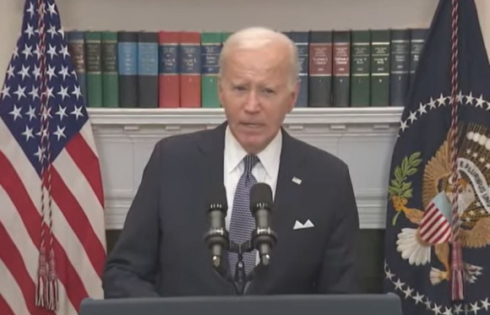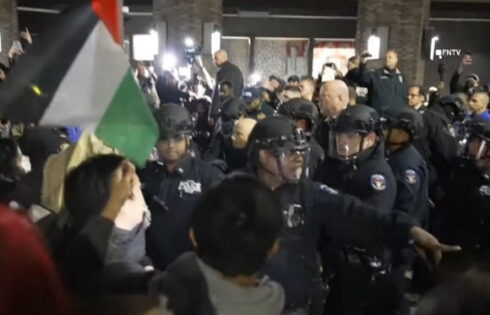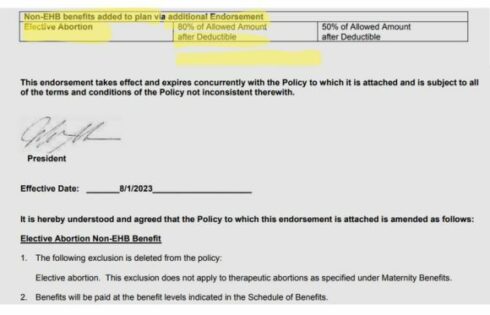
Student activists are ‘woefully ignorant,’ judge says
Brown University will get another crack at investigating a student accused of rape – but only if “John Doe” decides to return to campus.
A federal judge in Rhode Island ruled against the school Wednesday, finding that it violated Doe’s “reasonable expectations” – breach of contract – by judging him under a sexual-consent standard that was not in place when Doe was accused of rape.
Judge William E. Smith also had harsh words for how Brown trained its adjudicators in sexual-misconduct proceedings, and he ridiculed student activists who flooded his court with emotional appeals to make him rule against Doe.
MORE: Brown student judged under ex post facto rule ‘likely’ to win
Smith’s conclusions about Brown’s process are not unlike the FBI’s conclusions about Democratic presidential nominee Hillary Clinton’s use of a private email server as secretary of state: Brown’s conduct was inexcusable, but it won’t face the ultimate penalty.
Though the judge had already twice ruled in favor of Doe’s lawsuit, preventing Brown from removing him from campus or blocking him from attending fall classes, Smith described his final decision as a “very close call” in Doe’s favor.
Doe v. Brown University by The College Fix on Scribd
In a news release following the ruling, Brown put the ruling in the best possible light, noting that Doe failed in his gender-discrimination claim and will not recoup attorney’s fees from the school (which is practically impossible under Rhode Island law).
Doe is taking the semester off but remains enrolled at Brown. The school said it will “make a determination” on whether to put him through another misconduct proceeding if he decides to return to campus.
If it did, Brown would not be allowed to use its current sexual-consent standard, which is highly unfavorable to accused students. A spokesperson told The College Fix that Brown will not appeal Smith’s ruling to the 1st U.S. Circuit Court of Appeals.
Learn some ‘basic civics,’ you Ivy Leaguers
Smith’s opening paragraphs in his 84-page ruling suggest he did not want this case in his court, but Brown’s process compelled him to let it continue.
“It is important to make it unequivocally clear at the outset that the Court’s only role in this case is to determine” whether Brown violated Doe’s reasonable expectations under the policy in place when he was accused, Smith said:
It is not the Court’s role to determine the facts of what happened between John and Ann [Roe] … or to determine whether the procedure John received was optimal. This Court is not a super-appeals court for sexual misconduct cases, nor is it an advisor to Brown on how it should handle these messy and unfortunate situations.
But neither can Smith “be swayed by emotion or public opinion,” he said, noting he was “deluged with emails resulting from an organized campaign to influence the outcome”:
These tactics … have no place in the judicial process. This is basic civics, and one would think students and others affiliated with a prestigious Ivy League institution would know this. Moreover, having read a few of the emails, it is abundantly clear that the writers, while passionate, were woefully ignorant about the issues before the Court. Hopefully, they will read this decision and be educated.
While mischaracterizing ruling, no sign of critical self-reflection from leader of the Brown pressure campaign called out by Judge Smith: pic.twitter.com/R7hjE1ysYr
— KC Johnson (@kcjohnson9) September 29, 2016
The basics of the ruling boil down to: Doe was explicitly told twice he would be judged under the 2014-2015 code of conduct – which does not define “consent” – yet his panel was given the option to judge him under the Title IX policy that replaced that code:
Based on this fundamental flaw in Doe’s process along with several other less egregious errors discussed below, combined with the fact that the panel acknowledged, both by its 2-1 vote and through testimony at trial, that this was a very close case, Doe has proven by a preponderance of the evidence that Brown’s breach caused his damage, and he is entitled to a new hearing. …
While the new Complaint Process procedures applied, Doe retained his substantive rights under the 2014-15 Code. … for this case and any others remaining under the 2014-15 Code, Brown is contractually required to provide the rights it promised students in the Code.
Is it sexual assault to buy a woman dinner?
Smith wrestled with whether the 2014-2015 code could be read to prohibit “manipulation” – one of Roe’s claims against Doe – because it is “similar” to the explicitly prohibited “force, threat, or intimidation.”
He noted that “manipulation” (in the Title IX policy) could run the gamut from giving someone money for sex to buying her “flowers or dinner with the hope of a sexual encounter”:
Yet it is not clear from the 2014-15 Code where the line between permitted and prohibited behavior is and whether Doe’s conduct crossed that line. Because the Title IX Policy appears on its face to make any use of manipulation a violation, everything from a bribe to the old school use of presents and flattery, the Court finds that Brown materially altered the standard contained in the 2014-15 Code, and should not have given the Title IX Policy to Doe’s panel. It is not clear to the Court whether Brown actually intends to make any and all forms of manipulation prohibited conduct under the Title IX Policy. If so, it may be helpful going forward to make this clear by defining what is meant by this term.
In other words, Smith is suggesting to Brown that it clarify whether buying someone dinner is evidence of sexual assault.
MORE: Unwritten consent rule is on posters, so that counts, Brown says
The panel likely found Doe responsible for sexual assault as a direct result of using the Title IX policy, Smith says:
Panel members relied heavily on a text message John sent to Ann in which he stated “I’m manipulating you a lot.” … If the panel had not been given the Title IX Policy definition that explicitly included “manipulation” as a virtual per se violation, it is likely they would not have zeroed in on this text message as an admission, and in turn, may have interpreted the complete set of text messages differently.
Judge Smith: contrary to Brown statement, procedural irregularities likely affected the outcome. V impt point as to why procedure matters. pic.twitter.com/mcuEzuTwvc
— KC Johnson (@kcjohnson9) September 28, 2016
Refusal to ask for exculpatory evidence – or to use it
Smith had some choice words for the investigator in the case, Djuna Perkins, who was prohibited from making a “recommendation on responsibility” to the panel:
Perkins does not simply say that, based on her interviews, she found Ann credible; she says that there is insufficient evidence for the panel to find that Ann fabricated the claim, which of course she must have done if John were to be believed [that a witness conspired with Ann]. Second, Perkins’ assessment that there was insufficient evidence to support Doe’s fabrication claim was particularly problematic given that she had refused to ask for evidence that might have proven it so and been exculpatory to Doe. …
The problem here was that Perkins made the initial decision to include the conspiracy claim and corresponding character evidence, but then chose not to complete the evidence-gathering and went on to say that there was insufficient evidence to support Doe’s fabrication claim. Because of this, her failure to request the text messages between Ann and Witness 9 was a violation of Doe’s right “[t]o be given every opportunity to . . . offer evidence before the hearing body or officer.”
MORE: Rape accuser ruined my life because I liked her best friend
The judge also faulted the school for training its panelists in such a way that they might believe they must ignore exculpatory evidence.
Smith noted testimony from panelist Besenia Rodriguez that she ignored “post-encounter statements” from Ann:
Rodriguez stated that this was, in part, due to the training she had received by SHARE Advocate Alana Sacks, which informed panelists that survivors of sexual assault sometimes exhibit counter-intuitive behaviors. … Rodriguez then concluded “that it was beyond [her] degree of expertise to assess [Ann]’s post-encounter conduct . . . because of a possibility that it was a response to trauma.” …Yet this was precisely her job as a panel member: to interpret the evidence and make factual determinations about it. …
It appears what happened here was that a training presentation was given that resulted in at least one panelist completely disregarding an entire category of evidence.
More from Judge Smith, on the pernicious effects of Brown's training leading panelist to say that she had to disregard exculpatory evidence pic.twitter.com/77zhsP2Hnj
— KC Johnson (@kcjohnson9) September 28, 2016
In its statement on Smith’s ruling, Brown noted it has already changed some procedures – removing “manipulation” from the consent definition in the Title IX policy and “adjustments to hearing procedures,” among others – while addressing procedures that Smith said “could be strengthened.”
For a quick summary of key passages from Smith’s ruling, read tweets on the case by Brooklyn College Prof. KC Johnson, co-author of a book on the Duke lacrosse rape case.
MORE: Christian college sues the feds to block low evidence standard in rape cases
Like The College Fix on Facebook / Follow us on Twitter
IMAGE: Shutterstock






Please join the conversation about our stories on Facebook, Twitter, Instagram, Reddit, MeWe, Rumble, Gab, Minds and Gettr.